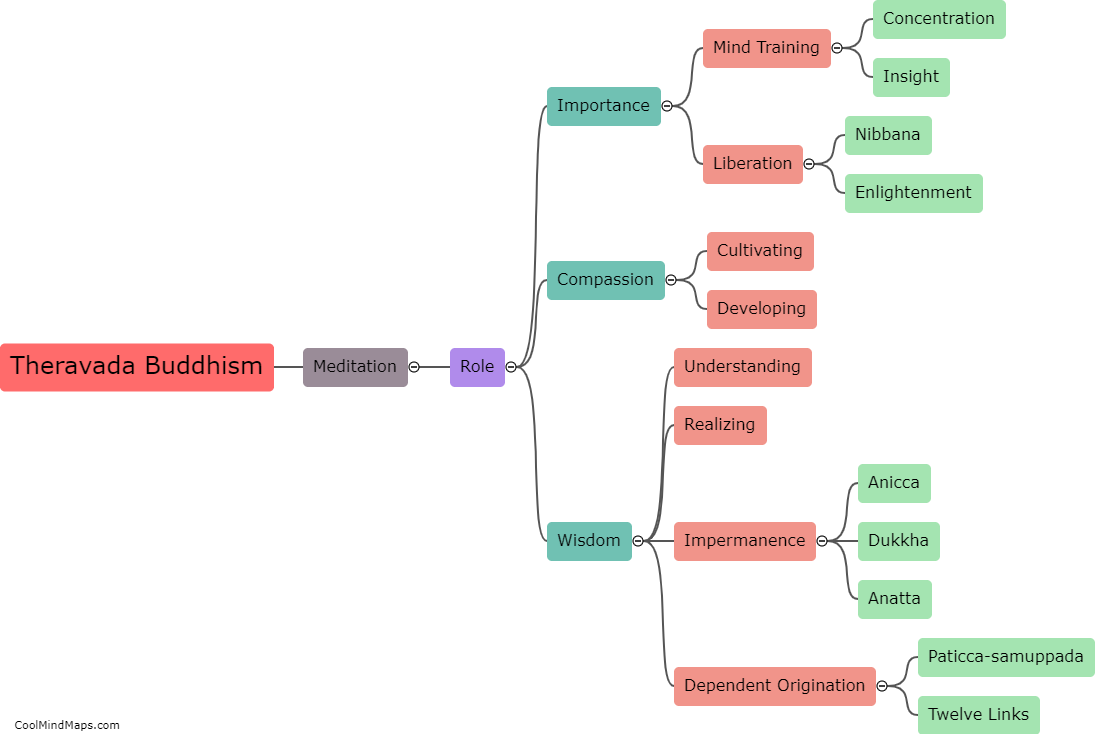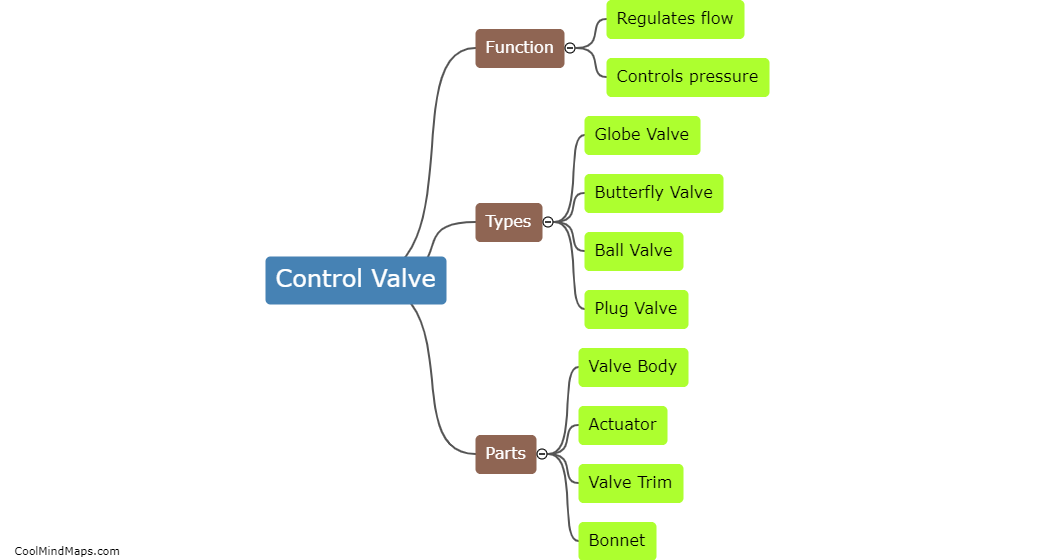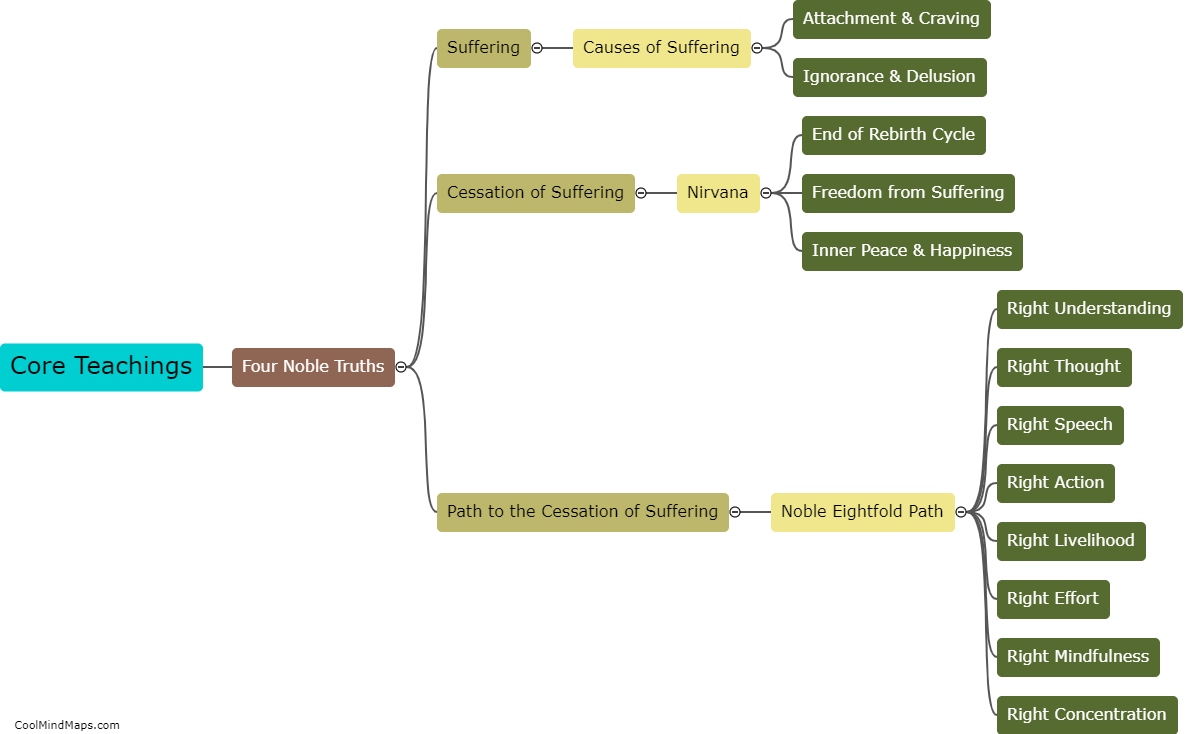How does meditation play a role in Theravada Buddhism?
In Theravada Buddhism, meditation is a crucial practice that plays a central role in one's spiritual development and path to liberation. This form of Buddhism emphasizes the cultivation of mindfulness and insight through meditation techniques, such as Vipassana (insight) and Samatha (calm-abiding). Meditation is viewed as a means to tame the mind, liberate it from defilements and attachments, and ultimately attain enlightenment. Through sustained and concentrated meditation, practitioners aim to develop deep states of concentration and a clear awareness of the present moment, which leads to the direct experience of the impermanent and selfless nature of reality. This focused attention enhances understanding, wisdom, and the ability to discern between wholesome and unwholesome mental states, fostering self-transformation and liberation from suffering.

This mind map was published on 12 September 2023 and has been viewed 116 times.











